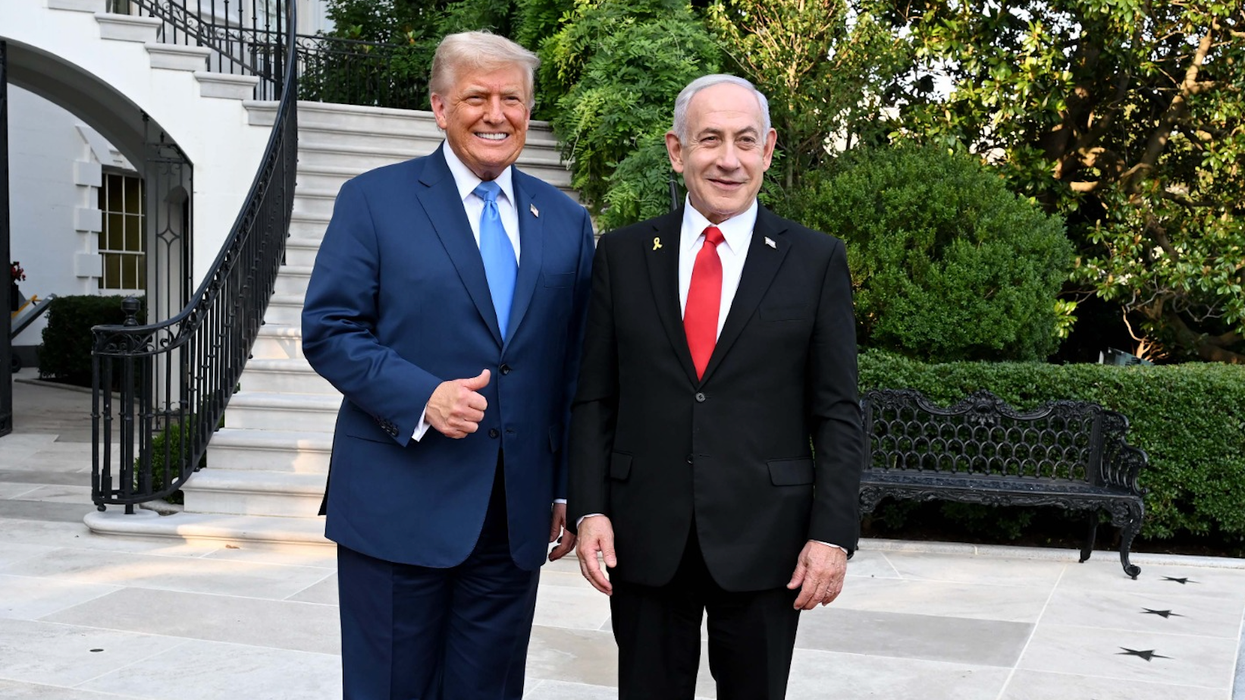Trump's 'Bomb Magnet' Fleet Could 'Never Sail' and Waste Billions of Dollars: Experts
"A future administration will cancel the program before the first ship hits the water," said one critic.
President Donald Trump on Monday announced that the US Navy is building a new class of warship that will be named after him—but naval warfare experts are warning the project looks like a wasteful boondoggle.
Mark Cancian, a senior adviser at the Center for Strategic and International Studies, wrote an analysis of the Trump-branded ships the day after their announcement in which he bluntly predicted that they "will never sail."
Among other things, Cancian argued that the ship being commissioned by the president "will take years to design, cost $9 billion each to build, and contravene the Navy’s new concept of operations, which envisions distributed firepower."
As if that weren't enough, Cancian projected that "a future administration will cancel the program before the first ship hits the water."
Dan Grazier, a senior fellow and program director at the Stimson Center, also predicted doom for Trump's prized ships, which he said would be too overloaded with the latest cutting-edge technology to be effective at naval combat.
"Every gadget you add to one of these systems is one more thing that can break," Grazier wrote in an analysis published by the Quincy Institute for Responsible Statecraft. "When designers lack discipline, as they obviously did while sketching out this latest future boondoggle, a simple mathematical truth asserts itself."
In fact, Grazier felt so confident in his gloomy prognostication for Trump's warships that he told readers they could "take it to the bank."
"The Navy will spend tens of billions of dollars over the course of the next decade on the Trump-class program," he wrote. "At best, the Navy will receive three troublesome ships that will cost more than $10 billion each before then entire scheme is abandoned."
William Hartung, a senior research fellow at the Quincy Institute for Responsible Statecraft, flagged a particularly troubling detail of Trump's warship plan in a lengthy analysis published by Forbes on Thursday.
"The most troubling aspect of the proposed Trump-class ships is that they are supposed to carry sea-launched nuclear armed cruise missiles," Hartung explained. "The last thing the US military needs is yet another way to deliver nuclear weapons. And because nuclear-armed cruise missiles are difficult to tell from cruise missiles armed with nonnuclear bombs, there is a danger that and adversary could mistake an attack with a nonnuclear armed missile with a nuclear attack, with devastating consequences."
Hartung also pointed out that the ships, which are projected to cost billions each, are not the only pricey weapons system that Trump is planning to build, as earlier this year he vowed to build a "Golden Dome" missile defense system that is projected to cost anywhere from $292 billion and $3.6 trillion.
"It’s time for Congress to do its oversight job and slow down these 'golden' programs until the administration can make a plausible case that they can be both affordable and effective," Hartung concluded. "The odds are against them."
Bernard Loo, senior fellow at Singapore’s S. Rajaratnam School of International Studies, said in an interview with CNBC that Trump's proposed ships appear to be "a prestige project more than anything else."
Loo argued that the proposed ships' massive size, with each projected to displace more than 35,000 tons while measuring more than 840 feet, would make each vessel a "bomb magnet" for adversaries.
"The size and the prestige value of it all make it an even more tempting target," Loo added.


